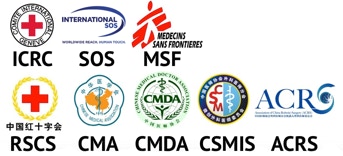

Institutions
Conditions
Drugs
Insurances
TCM
Research
About Us
Contact Us
What is hepatitis C?
Hepatitis C is a liver disease that is caused by the hepatitis C virus. Hepatitis C is one type of hepatitis.
Hepatitis is a redness and swelling (inflammation) of the liver that sometimes causes lasting damage. The liver isn’t able to work the way it should.
Hepatitis C can be short-term (acute) or long-term (chronic):
Acute hepatitis C. This is a brief infection that lasts 6 months or less. It goes away because your body gets rid of the virus.
Chronic hepatitis C. This is a long-lasting infection that happens when your body can’t get rid of the virus. It causes long-term liver damage.
It is rare to recover from hepatitis C infection. Most people with hepatitis C have the virus for the rest of their life.
What causes hepatitis C?
Hepatitis C is caused by infection from the hepatitis C virus. Like other viruses, hepatitis C is passed from person to person. This happens when you have contact with an infected person’s blood.
You may get the virus if you:
Share needles used for illegal drugs.
Have unprotected sex with someone who has hepatitis C
Babies may also get the disease if their mother has the hepatitis C virus.
Who is at risk for hepatitis C?
Anyone can get hepatitis C by having contact with the blood of someone who is infected with the virus.
But some people are at higher risk for the disease. They include:
Children born to mothers who are infected with hepatitis C
People who have jobs that involve contact with human blood, body fluids, or needles
People who have a blood-clotting disorder such as hemophilia, and received clotting factors before 1987
People who need dialysis treatment for kidney failure
People who had blood transfusions, blood products, or organ transplants before the early 1990s
People who take IV or intravenous drugs
People who have unprotected heterosexual or homosexual sex
People with HIV
What are the symptoms of hepatitis C?
Many people with hepatitis C don’t know they have it. In most cases people who are infected with hepatitis C may not show any symptoms for several years.
It is still possible to pass the virus to someone else if you have hepatitis C but do not have any symptoms.
Each person’s symptoms may vary. Some of the most common symptoms include:
Loss of appetite
Extreme tiredness (fatigue)
Nausea and vomiting
Stomach pain
Yellowing of the skin and eyes (jaundice)
Fever
Diarrhea
Dark yellow urine
Light-colored stools
Muscle and joint pain
Hepatitis C symptoms may look like other health problems. Always see your healthcare provider to be sure.
How is hepatitis C diagnosed?
Your healthcare provider will give you a physical exam and ask about your past health. He or she will also do a blood test to see if you have hepatitis C.
If your provider thinks you have long-term (chronic) hepatitis C, he or she may take a small tissue sample (biopsy) from your liver with a needle. The sample is checked under a microscope to see what type of liver disease you have and how severe it is.
How is hepatitis C treated?
Hepatitis C is not treated unless it becomes a long-term or chronic infection. Then medicines are used to try to slow down or stop the virus from hurting your liver. Your symptoms will be closely watched and managed as needed.
If severe liver damage takes place, you may need a liver transplant.
There is no cure for hepatitis C.
What are the complications of hepatitis C?
Many people with hepatitis C develop chronic liver disease. You could need a liver transplant. Hepatitis C is the most common cause of liver transplants in the U.S.
Liver failure can lead to death.
The risk of liver cancer is higher in people with hepatitis C.
What can I do to prevent hepatitis C?
There is no vaccine to prevent hepatitis C. But you can protect yourself and others from getting infected by:
Making sure any tattoos or body piercings are done with sterile tools
Not sharing needles and other drug materials
Not sharing toothbrushes or razors
Not touching another person’s blood unless you wear gloves
Using condoms during sex
Key points about hepatitis C
Hepatitis C is a liver disease caused by infection from the hepatitis C virus.
The virus causes redness and swelling (inflammation) in your liver.
The virus spreads when you have contact with an infected person’s blood.
Anyone can get hepatitis C but some people are at higher risk.
You may not have any symptoms for years.
The risk of liver cancer is higher in people with hepatitis C.
There is no vaccine to prevent hepatitis C.
Next steps
Tips to help you get the most from a visit to your health care provider:
Before your visit, write down questions you want answered.
Bring someone with you to help you ask questions and remember what your provider tells you.
At the visit, write down the names of new medicines, treatments, or tests, and any new instructions your provider gives you.
If you have a follow-up appointment, write down the date, time, and purpose for that visit.
Know how you can contact your provider if you have questions.
















